5 MORE Must-Read Books on Women’s Issues
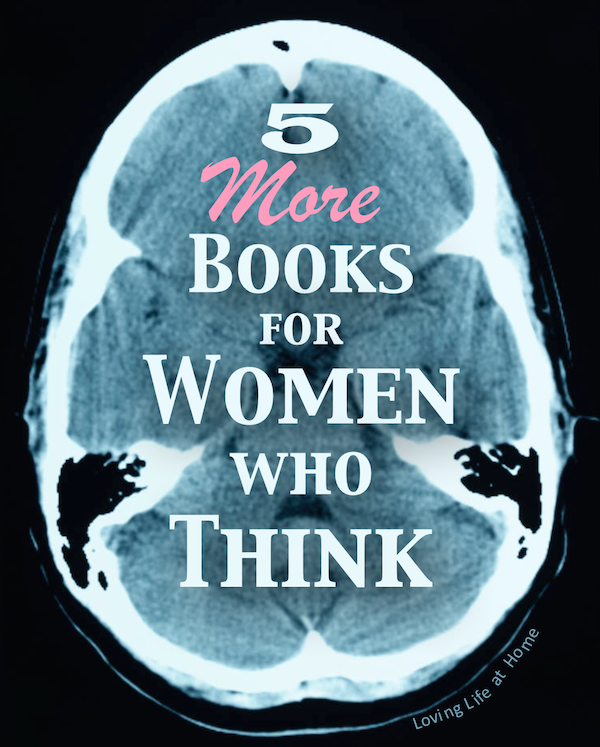 I’m not the only one who’s read a bunch of books on women’s issues. So has my daughter, although hers was not purely pleasure reading.
I’m not the only one who’s read a bunch of books on women’s issues. So has my daughter, although hers was not purely pleasure reading.
Rather, it was assigned reading for a Women’s Studies class she took to fulfill a degree requirement during her first semester at Texas A&M (a fairly conservative school, as colleges go).
A couple weeks into the semester, she she sent me the following message: “Today in class we learned that the Biblical model of marriage is archaic, oppressive, and responsible for all kinds of evil. Apparently, you and Dad have been doing it all wrong,” she observed dryly. “So I just wanted to let you know… and to say THANK YOU!”
That last part was written in complete sincerity, without a hint of sarcasm. She’d been away from home long enough by that time to see firsthand some of the devastation that comes when God’s design for sex and marriage is ignored or rejected. It made her grateful to have been spared such heartache by parents intent on honoring their commitment to one another and ordering their lives according to Scripture.
Still, it is troubling to think that young people today are being sucked in by philosophies so antithetical to Biblical wisdom and common sense, like those touted in my daughter’s gender studies class. Thankfully, there has been a heartening amount of pushback by women who don’t like the direction all this downward spiral of “progress” is taking us — including the authors of several fine books on such women’s issues as feminism, abortion, marriage, and other related topics.
Several years ago, I published a list of favorites called 5 Must-Read Books for Women Who Think. That has since become my most popular post of all time, eventually even surpassing 25 Ways to Communicate Respect in total views.
The fact that a listing of books on women’s issues has enjoyed such staying power tells me that women’s rights and gender issues are still hot-button topics and will likely remain so for some time. Indeed, I continue to explore those themes myself and would highly recommend the following recent reads (meant to complement, not replace, the original list)to anyone who enjoys thinking through such matters and wants to do so intelligently.
5 MORE Must-Read Books on Women’s Issues
Subverted: How I Helped the Sexual Revolution Hijack the Women’s Movement by Sue Ellen Browder
If you think “fake news” has only been a problem since the last election cycle, this book will open your eyes to the fact that the Left has been using pure fabrications to push forward a liberal agenda for decades.
Falsified studies, counterfeit testimonials, grossly inflated statistics, and outright lies were used to peddle abortion rights and so-called sexual liberation in the sixties and seventies, and society has been paying the price ever since.
EXCERPT:‘Feminism made women disposable.’ …of course, it wasn’t feminism per se, but the secret marriage of the women’s movement with the sexual revolution that persuaded many misguided women to allow themselves to be sexually used and then disposed of (along with their babies).
“By the early 1980s, victims of the sexual revolution began to appear everywhere. Previously crisp, black-and-white guidelines about how men and women should treat one another seemed to have faded into dim, wavy lines of gray. Single women who wanted to marry couldn’t find suitable mates. Married women were getting divorced. Many career women who’d waited until their mid-thirties to have children discovered they’d waited too long and now either had to accept lifelong childlessness or go through the torments of in-vitro fertilization and other tortuous medical procedures just to get pregnant.”
Spin Sisters: How Women of the Media Sell Unhappiness and Liberalism to the Women of America by Myrna Blythe
For convincing proof that liberal media elites are out of touch with reality in general and mainstream America in specific, read Spin Sisters. Written by the former editor-in-chief of Ladies Home Journal, the book gives us a peek into the inner workings of the women’s magazine industry.
These rags all follow the same recipe: convince women they’re stressed, oppressed, fat, wrinkled, or worn out so they’ll buy the remedies you’re hawking — and the products your sponsors are selling, as well. It’s little wonder that many women believe the messages with which our society has bombarded them since birth. Blythe makes me happy my own mother never subscribed.
EXCERPT:
For the last two decades, we’ve been told over and over again that if we are women, we are, de facto, victims — because of the stress in our lives, because of the dangers in our environment, because of our need to be attractive in order to please men, and because of the inherently dangerous, violent nature of men. We, who are certainly the most fortunate women the world has ever known, remain a victim class. Forget the gains we have made in almost every significant area, from health to education to economics. Forget the opportunities that are available to us. Forget our personal strength and resiliency. According to [these liberal Spin Sisters], our political attitudes should be based on redressing the accumulated wrongs we continue to experience because as women we are a victimized group. And if, by chance, you don’t buy their political line, well then, there must be something wrong with you….
“That’s how for-women-only political bias operates. It implies that if… you don’t happen to support the liberal agenda in every detail, then you are the one who is out of step. Or rigid. Or crazy. Or a traitor to your sisters. And we are all sisters — unless you disagree.
“In his best seller Bias [ed. note: another worthwhile read!], Bernard Goldberg writes about media elites. ‘Their friends are liberals, just as they are. They share the same values. Almost all of them think the same way on the big social issues of our time…. After a while they start to believe that all civilized people think the same way they and their friends do. That’s why they don’t simply disagree with conservatives. They see them as morally deficient.'”
Sex Scandal:The Drive to Abolish Male and Female by Ashley McGuire
My husband saw this author interviewed on television and immediately sent me a link to her book, saying that he thought it looked like something I’d really enjoy reading. He was 100% right.
The book is hot off the presses, so I thought the author might delve more deeply into some of the gender confusion stories we’ve seen in the news lately. But — other than mentioning the fact that “in 2014, Facebook launched a feature that allowed users to choose from as many as seventy-one different ways of identifying their gender” (even that list proved to be too restrictive and was eventually abandoned for a fill-in-the-blank option) — she stays primarily focused on the standard differentiation of male/female and sex differences that persist, despite society’s unflagging efforts to deny, destroy, or explain them away.
EXCERPT:
Does great variety exist within the sexes? Of course. Some men are poets, some men are soldiers. Some women are trial lawyers, while others write books. Some men vacuum. Some women don’t cook.
“And yet, despite historical changes in fashion preferences, domestic arrangements, professional inclinations, and so much more, certain aspects of nature stubbornly persist. Shifts in who wears pink have not changed the fact that women, and only women, can conceive, gestate, and give birth to a new member of the human species. Men are, on the whole, the physically stronger sex. Culture may imbue gender with certain random characteristics, but science is not walking away from sex as a key feature of humanity.
“Culture may change, but reality doesn’t.”
Who Killed the American Family? by Phyllis Schlafley
If I weren’t already of the opinion that divorce is not an option for my own marriage, this book would give me all the motivation I need to work through any problems and stay out of family law courts if at all possible.
Schlafley provides a sobering and eye-opening discussion of the failing health of modern American marriages and the forces that have conspired to fragment our families.
EXCERPT:
The argument for unilateral divorce was that it would end the acrimony in marriage breakups and possibly false assertions (about adultery, abandonment, violence, and so forth). But unilateral divorce did not eliminate false charges and countercharges; it simply transferred the nastiness to battles over child custody and financial support.
“Divorce imposes heavy human costs, particularly on children. Michael Reagan wrote eloquently about his parents’ divorce: ‘Divorce is where two adults take everything that matters to a child — the child’s home, family, security, and sense of being loved and protected — and they smash it all up, leave it in ruins on the floor, then walk out and leave the child to clean up the mess.’
“What the children of divorce have always known is now confirmed by research that shows that the adverse impact of divorce on children is often deep and long lasting, and it increases over time.”
The Alpha Female’s Guide to Love and Marriage: How Love Works by Suzanne Venker
Although most of her advice is biblically sound, Venker does not cite chapter and verse to support it. Rather, she appeals to studies, statistics, personal experience, and common sense.
The end result is a very pragmatic book for women who want to improve their marriage but who do not necessarily identify as Christians (like many of the Red Pill Women on Reddit).
EXCERPT:
No expectation has been more damaging to women and to marriage than the feminist notion of equality. Notice I say the ‘feminist’ notion. That’s because a marriage can be equal, or equal enough, depending on how you define this term. So much of what is wrong with feminism has to do with the labeling. If you change the definition of a word or a phrase, the whole scenario looks different.
“The equality you’ve been taught to embrace suggests men and women are interchangeable, and they are not….
“[T]he feminist worldview is antithetical to love because its focus is solely on women: their needs, their wants, their desires, and their rights. Love can’t possibly be sustained with an attitude like that…”
That wraps up my newest recommendations for good books on women’s issues, at least for the time being. Of course, I’m working my way through a pretty tall stack of books on my desk right now (hooray for summer!) and will likely share the best picks in a future post, so stay tuned!
Know any other bookworms who’d enjoy this list? I’d be thrilled for you to share it or pin it or send it by email.
Have you read any great books on women’s issues (or any other topic) you think I shouldn’t miss? Tell me about them in the comment section below. That’s how I learned about Subverted, which is how this whole follow-up post got started.
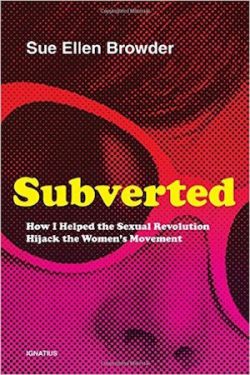
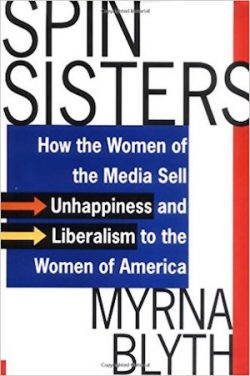
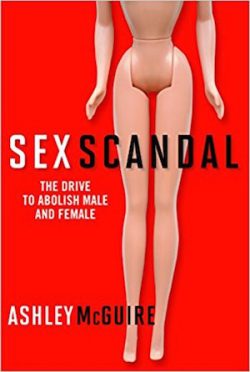

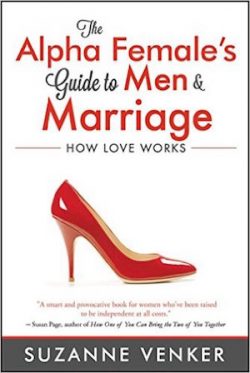
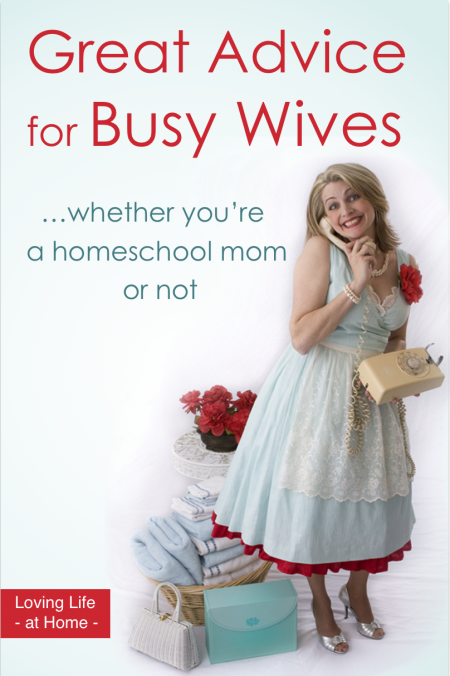

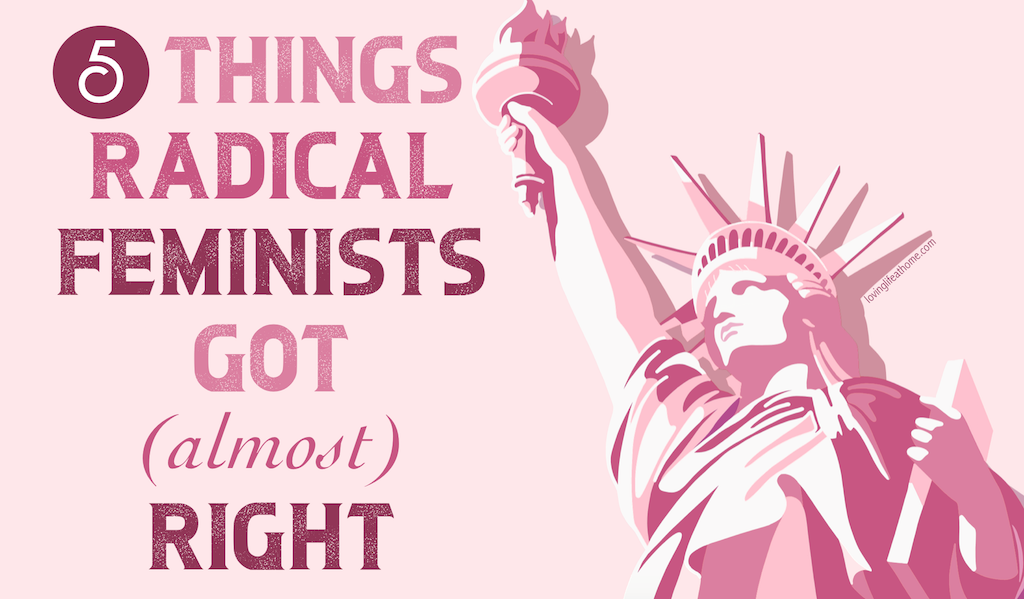



I love your lists! They do all look like excellent books. Have you read Eve in Exile yet? That is another book for women who can think and read at the college level!
Thanks for the recommendation, Janine. I hadn’t heard of it before, but it looks excellent. Putting it on my “to read” list now!